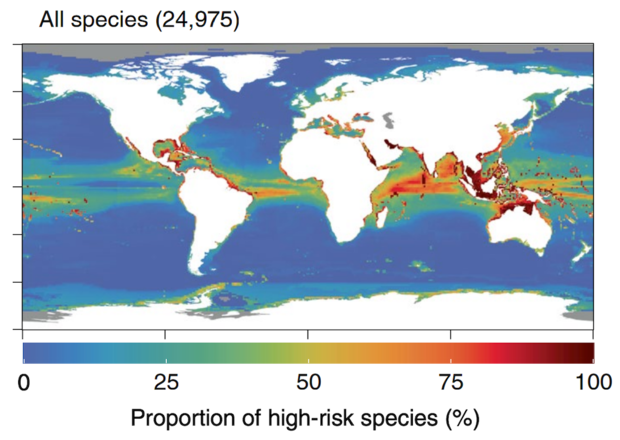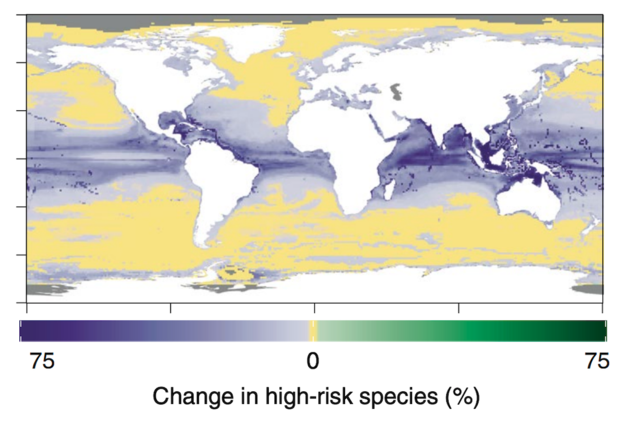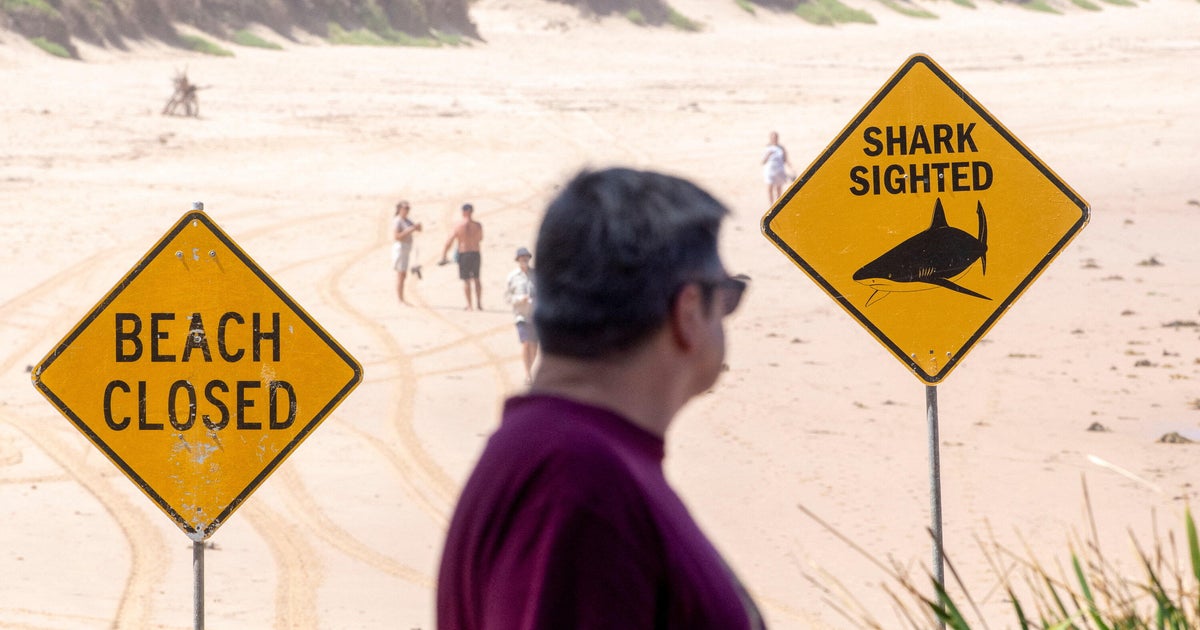Nearly every marine species will be at risk of extinction within 78 years if greenhouse gas emissions are not limited, study finds
A new study paints a shocking picture of the fate of marine life if human contributions to climate change are not curbed. If greenhouse gases continue to be emitted at high rates, by the end of the century — just 78 years away — nearly every marine species could face extinction, researchers found.
The study, published in Nature Climate Change on Monday, analyzed how roughly 25,000 species will be able to cope under a variety of emissions scenarios that have been illustrated by the United Nations Intergovernmental Panel on Climate Change.
In a guest post for Carbon Brief, study authors Daniel Boyce and Derek Tittensor wrote that "climate change is rewiring marine ecosystems at an alarming rate" and that their work essentially created a "climate report card" for marine life.
"Just as a report card grades students on subjects such as maths and science, we used a data-driven approach to score individual species on 12 specific climate risk factors in all parts of the ocean where they live," they said.
Under the highest emissions scenario, called SSP5-8.5, current carbon dioxide emissions would be doubled by 2050.
Following this pathway, the world could expect to be up to 5.7ªC (more than 42ºF) warmer by the end of the century compared to pre-industrial times — spurring more agricultural issues, devastating natural disasters and forced migration, scientists said. According to the study, this scenario would put about 90% of marine life in the upper 100 meters of the ocean at high or critical risk of extinction.
The species most threatened are the largest predators, particularly those that are hunted by people for food, such as tunas and sharks. Endemic species, those that are found in a single geographic area, are also much more vulnerable.
"The findings also suggest severe knock-on impacts for people who rely on the ocean the most," Boyce and Tittensor said.
Low-income countries that depend on fisheries, and those that heavily rely on fish such as cod, anchovies and lobsters for food and revenue, would bear that burden, researchers said.
But on the flip side, if the world would enact severe cuts and reach net-zero carbon emissions by 2050 and limit global warming to 2ªC, "virtually all species" researchers examined would have their risk of extinction drastically reduced. It would also help stabilize ecosystems and could be monumentally beneficial for food-insecure nations, researchers said.
"Overall, our results indicate that the climate risk for marine life is strongly dependent on the magnitude of future emissions," researchers concluded.
President Biden recently signed into law the Inflation Reduction Act, which among other things provides $369 billion to fund energy and climate projects with the goal of reducing carbon emissions by 40% in 2030.
And while this has been heralded by climate experts as being a major step in limiting emissions, it also comes soon after the Supreme Court ruled to limit the Environmental Protection Agency's ability to regulate power plant emissions. It also comes just months after the United Nations issued a report that governments worldwide have only continued to invest in fossil fuel infrastructure and deforestation.
Boyce and Tittensor said this means that mitigation is essential. If countries don't drastically increase their efforts to reduce emissions, the planet will be up to 6.3ºF warmer within 80 years — and the worst scenario, SSP5-8.5, is possible.
But nations must also focus on adaptation because even if emissions stop today, the world will continue to warm based on what it has already endured, Boyce and Tittensor said.
"The reality is that climate change is already impacting the oceans, and even with effective climate mitigation, they will continue to change," they wrote in the guest blog post. "Therefore, adapting to a warming climate is crucial to building resilience for both ocean species and people."







